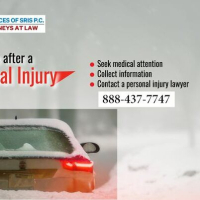New jersey flsa lawyer
New jersey flsa lawyer
With the aid of a FLSA (Fair Labor Standards Act) attorney, submitting a wage and hour claim in New Jersey normally entails a number of procedures.
An outline of the procedure is given below:
Meeting with a FLSA attorney:
Getting the Documents:
Together with your lawyer, you will compile pertinent records, including pay stubs, work records, time sheets, employment agreements, and any other evidence pertaining to your wage and hour claims. This supporting documentation is essential to your argument. Evaluation of FLSA Violations to determine if your employer violated federal and state wage and hour regulations, such as by failing to pay minimum wage, overtime, or incorrectly designating workers as exempt from FLSA protections, your FLSA attorney will examine the obtained papers.
Negotiation and a Letter of Demand:
In such circumstances, the attorney might begin by delivering a demand letter to your employer stating the infractions and requesting a negotiation to resolve them. This is an effort to settle the dispute out of court. Complaint submission: In the event that negotiations end in an impasse, your FLSA attorney will formally complain on your behalf. Typically, this entails submitting a complaint to the relevant government body, such as the Wage and Hour Division of the U.S. Department of Labor or the New Jersey Division of Labor.
The legal process:
Legal action may start after a complaint is made. Throughout the legal procedure, which may include investigations, hearings, and court appearances, your FLSA attorney will defend your interests.
Discoveries and Proof:
Both sides will exchange information and evidence during discovery, which takes place during the court procedures. This could involve document requests, interrogatories, and depositions.
Deal-making negotiations:
Settlement negotiations are frequently used to resolve wage and hour disputes. To obtain a settlement you are comfortable with, your FLSA attorney will negotiate with your employer or their legal counsel.
Suing or being tried:
In the event that a settlement cannot be reached, litigation may be necessary. Your attorney will appear on your behalf in court, offering proof and arguments to you've made.
Conclusion or Decision:
The court will issue a ruling if your case proceeds to trial. The court may grant you damages, including back pay and other remedies, if you prevail in your case.
Enforcement of the Decision:
Your FLSA attorney will help you enforce the judgment and make sure you get the amount you are due. It's crucial to keep in mind that the particular phases and procedures may change depending on the specifics of your case, and the process may change if your claims are based on state wage and hour legislation.
FLSA attorney will represent your interests and walk you through the entire procedure. If you have any legal questions, visit our group of SRIS lawyers.
Please contact us 888-437-7747
